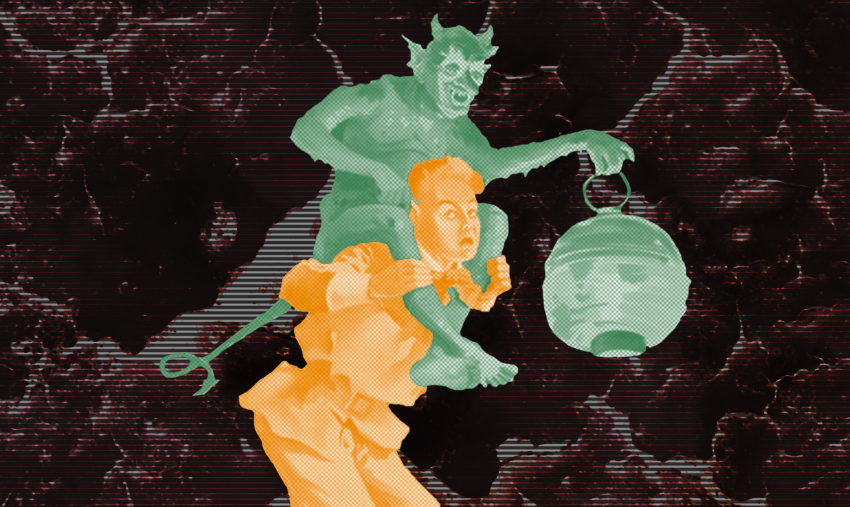The Devil’s “Devil’s Plan” Plan
Reality competitions are taking a dark, inhuman turn… and we’re not sure that’s okay

Once upon a time, most entertainment was rated G, and game shows were wholesome. Families across the country would religiously tune in to prime-time television to watch a happy host with a toothy grin interact with contestants as they guessed prices, phrases, quantities, and who or what was hiding behind the curtain.
But times change. These days, family-friendly TV is not as friendly as it used to be. With the success of dystopian thrillers such as Hunger Games and Squid Game, it’s quite clear that TV, as we know it, is venturing into a new frontier.
True, we’re not quite at the point where we’re sending our children out to risk their lives for groceries – but we’re not as far from that as we’d like to believe. For instance, Power Slap, the “brainchild” of UFC president Dana White, is one excellent example of how American game shows are becoming progressively darker and bloodier. And that brings us, across the Pacific, to our main event.
Enter The Devil’s Plan
With a host and set eerily similar to Squid Game, the Netflix series The Devil’s Plan locks a cast of 12 brainiacs and overachievers, many of them well-known in the series’ home of Korea, in a set that looks like a high-class cell block. These constestants – everything from a surgeon to an e-athlete to a legit K-pop star – compete in a series of unconventional games, while a loudspeaker randomly barks out orders. In true game show fashion, there are plenty of twists and turns along the way.
The reality competition has the sort of dystopian aesthetic we’ve only seen before in the Saw movies. The gameplay has been compared to Survivor, but it’s bereft of sun and fun… not to mention a host who doesn’t look like the CGI son of Oogie Boogie from The Nightmare Before Christmas.
Yes, while there have been countless types of game shows over the years, one thing has always remained the same: a happy, smiley, and at least semi-friendly host and cast. This is mainly because the host sets the tone. Though it’s entertaining to watch people engage in ridiculous competitions to win money and other rewards, we’d rather watch people compete in safe environments, surrounded by humans who are looking out for their safety and well-being. Until recent years, even the ugliest competitions had a friendly air that made the shows palatable enough for viewers of all temperaments.
… and that’s not all
Netflix was already slowly headed in this direction. The Circle requires everyone to live in a compound, separated from all other contestants. Although it does have a happy, smiling host, it also has a virtual omnipotent overlord who helps manage the show via broadcasted text and audio messages. And the contestants don’t interact in person, but online from separate apartment sets; they essentially compete as catfish to manipulate the other players. The tagline? “Be whoever it takes to win.”
The Circle was preceded by the British-American game show Killer Camp, which dropped 11 contestants at an ‘80s-style lakeside lodge, only to blindside them with a horror-story plot, forcing them to find the killer among them in order to survive. It even includes a murderous handyman sidekick, who helps the killer get the job done. Fun for the whole family!
This new era of game shows represents a colder, more sterile reality sector that removes the human touch and replaces it with psycho-thriller environments. Going back to Saw, anyone who’s familiar with that series will recognize the influence on the proceedings in The Devil’s Plan. So take this slippery-slope argument for what it’s worth, but there’s little question that removing actual hosts is a step that distances the audience from the players – and the players from the producers. It’s far easier to torture people when you’re sitting safely in a control room, than when you have to look them in their eyes. (We’ve already learned this in other areas.)
So, will long-term psychological issues soon be a common side effect of being on a game show? How long will it take before producers start encouraging the contestants to harm themselves or others to win? How long before the contestants comply? How long before viewers begin to accept this as the norm? Stay tuned…
